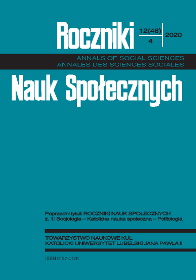Conceptual Fundamentals of Post-Westphalian International Relations
Conceptual Fundamentals of Post-Westphalian International Relations
Author(s): Alla Kyrydon, Serhiy TroyanSubject(s): Politics / Political Sciences, Politics, International relations/trade
Published by: Towarzystwo Naukowe KUL & Katolicki Uniwersytet Lubelski Jana Pawła II
Keywords: post-westphalian international relations; world after the end of the Cold War; globalization; integration; turbulence international relations
Summary/Abstract: Conceptual approaches to understanding the current stage of the evolution of international relations were put in place during the destruction of the bipolar world of the Cold War and the formation of new foundations of the world and international order. The distinctiveness of this process is that the collapse of the postwar system took place in peaceful conditions. Most often, two terms are used to describe the interconnectedness and interdependence of world politics after the fall of the Iron Curtain: the post-bipolar (post-westphalian) international system or international relations after the end of the Cold War. Two terms, post-bipolar international system and international relations after the end of the Cold War, have common features, which usually allows them to be used as synonyms and makes them the most popular when choosing a common comprehensive definition for the modern international relations. The collapse of the Soviet bloc and the global bipolar system put on the agenda issues that cannot be resolved within the traditional terms “poles,” “balance of power,” “configuration of the balance of power” etc. The world has entered a period of uncertainty and growing risks. the global international system is experiencing profound shocks associated with the transformation of its structure, changes in its interaction with the environment, which accordingly affects its regional and peripheral dimensions. In modern post-bipolar relations of shaky equilibrium, there is an obvious focus on the transformation of the world international order into a “post-American world” with the critical dynamics of relations between old and new actors at the global level. The question of the further evolution of the entire system of international relations in the post-bipolar world and the tendency of its transformation from a confrontational to a system of cooperation remains open.
Journal: Roczniki Nauk Społecznych
- Issue Year: 48/2020
- Issue No: 4
- Page Range: 69-85
- Page Count: 17
- Language: Polish

